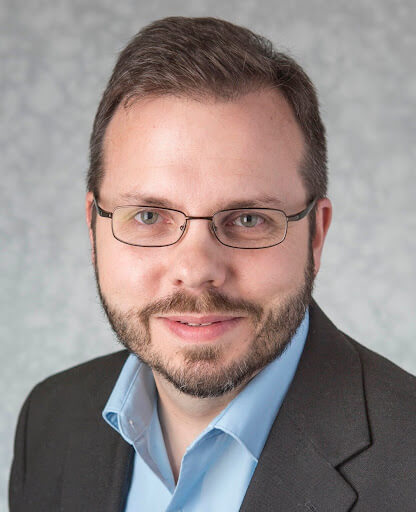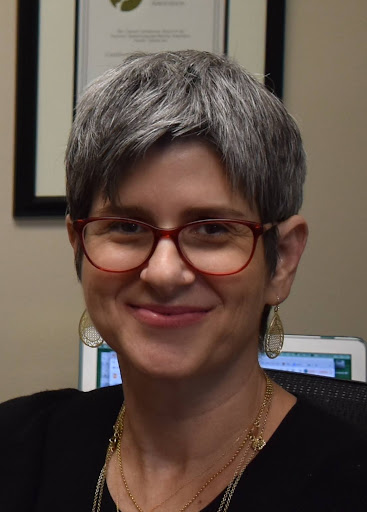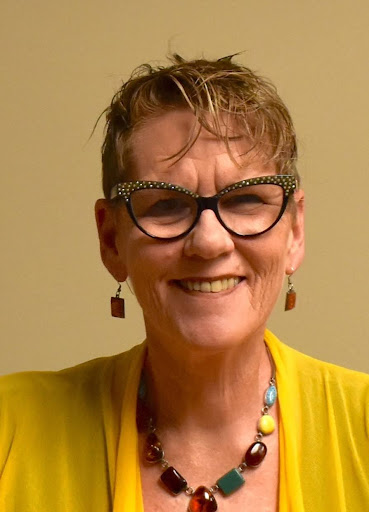Join us on Jan. 8 for an exciting professional development program featuring leading experts in the areas of authentic assessment and language-based literacy disabilities.
Dr. Robert Talbert of GVSU will share strategies for shifting assessment practices to better engage learners. Drs. Lauren Katz and Joanne Pierson of the Literacy, Language, and Learning Institute (3LI) in Ann Arbor will bring us up-to-date on new understandings around dyslexia and related learning disorders, including tips on how to better support our students. Read below for more on these presentations and speakers’ backgrounds.
Our program starts with lunch in the former library area in the Osterlin Building followed by presentations upstairs in O203 and O205. Participants will split into two groups to attend both presentations.
Our schedule is a departure from the usual practice of holding professional development after the president’s January Conference. We shifted the time because of an orientation session scheduled for the afternoon of Jan. 7. However, because faculty will already be on campus for departmental meetings, we decided that Wednesday afternoon was the best possible alternative.
CIE professional development programming is required for full-time faculty, but we hope that adjunct faculty and staff will join us. Adjunct faculty receive a stipend for attending.
Grading for Growth: Toward more humane, authentic, and trustworthy ways to evaluate student work
Presenter: Dr. Robert Talbert

Dr. Robert Talbert
Grading as we know it is significantly broken. The traditional approach involving one-and-done assessment, points, partial credit, and averaging is demotivating for students, demoralizing for faculty, time-consuming, disconnected from science, and of questionable statistical validity. But it is not unchangeable, and in fact there is no better time than now to explore alternatives that prioritize student growth and align better with how humans learn. In this talk, we’ll explore the history and issues of traditional grading, propose a framework for “alternative” grading practices, and see how to implement alternative grading without massive requirements of time or energy.
Bio sketch: Robert Talbert is a Professor of Mathematics at Grand Valley State University in Allendale, Michigan. He holds a Ph.D. in Mathematics from Vanderbilt University. Through over 25 years of being a classroom instructor at small liberal arts colleges and regional public universities, Robert has experimented with and advocated for research-based, student-focused innovation in teaching and learning. He was an early adopter of computer-based learning in mathematics and helped to pioneer the use of flipped instruction at the college level. He turned these experiences into a blog, Casting Out Nines, in 2006 which catalyzed a global online community around instructional innovation.
In addition to his teaching responsibilities, Robert holds the position of Senior Faculty Fellow for Learning Futures at Grand Valley State, where he works on behalf of the university president to coordinate institution-wide pedagogical innovation projects. He is the author of Flipped Learning: A Guide for Higher Education Faculty and the co-author (with his GVSU colleague Dr. David Clark) of Grading For Growth, and gives keynote addresses and workshops to faculty groups throughout the US and abroad. His continued writing projects include the Grading For Growth Substack (gradingforgrowth.com) and Intentional Academia, a Substack publication about productivity and purpose in higher education.
Robert lives in western Michigan with his wife, teenage children, and three cats. On weekends and evenings, you can find him playing bass in one of four cover bands he belongs to in the Grand Rapids area.
Supporting College Students with Dyslexia and Language-Based Learning Disabilities
Presenters: Dr. Lauren Katz and Dr. Joanne Pierson

Dr. Lauren A. Katz
New research has led to a better understanding of dyslexia and language-based learning disabilities in general and how these disorders can negatively impact the learning and academic performance of college students in particular. This presentation will provide recommendations for how best to support students with language-based learning disabilities in the college setting. We’ll review common accommodations and assistive technologies as well as instructional practices to support and promote reading comprehension, written expression, and learning more generally.
Presenter Bios
Dr. Lauren A. Katz, CCC-SLP, is a co-founder of the Literacy, Language, and Learning Institute (3LI) in Ann Arbor. She was a lecturer in the School of Education at the University of Michigan, and she was a tenured professor in the Department of Communication Sciences and Disorders at Bowling Green State University (BGSU). While at BGSU, Dr. Katz founded and directed the ROWing Clinic (Reading, Organizing, and Writing) for school-age and college students with language and literacy disorders, and she conducted research around language and literacy disorders with school-age and college students. Early in her career, Dr. Katz worked as a school-based speech-language pathologist. Currently, she conducts diagnostic assessments and provides treatment to children, adolescents, and adults struggling with language and literacy, and she provides professional development seminars and workshops in the areas of language and literacy disorders. Dr. Katz has served as an expert literacy consultant for educational cases around right to literacy and special education rights for districts in California and Michigan. Dr. Katz holds certification in speech-language pathology (SLP) from the American Speech-Language-Hearing-Association (ASHA).

Dr. Joanne M. Pierson
Dr. Joanne M. Pierson, CCC-SLP is a co-founder of the Literacy, Language, and Learning Institute (3LI) in Ann Arbor. For over 11 years, Dr. Pierson was the Associate Director at the University of Michigan Center for the Development of Language and Literacy (UCLL). She managed the clinical services programs, trained speech-language pathologists in literacy and dyslexia, and developed programs for children, adolescents, and college students. Dr. Pierson developed and continues to manage DyslexiaHelp, a donor-funded, state-of-the-art curriculum and resource center offered free via the web to anyone with an interest in dyslexia. In addition, Dr. Pierson conducts diagnostic assessments and provides treatment to children, adolescents, and adults struggling with language and literacy, and she gives talks and workshops on the role of oral language in literacy learning and dyslexia. Dr. Pierson holds certification in speech-language pathology (SLP) from the American Speech-Language-Hearing-Association (ASHA) and licensure in SLP and K-8 teacher certification from the State of Michigan. She is a former president of the board of the Michigan Branch of the International Dyslexia Association (IDA).

